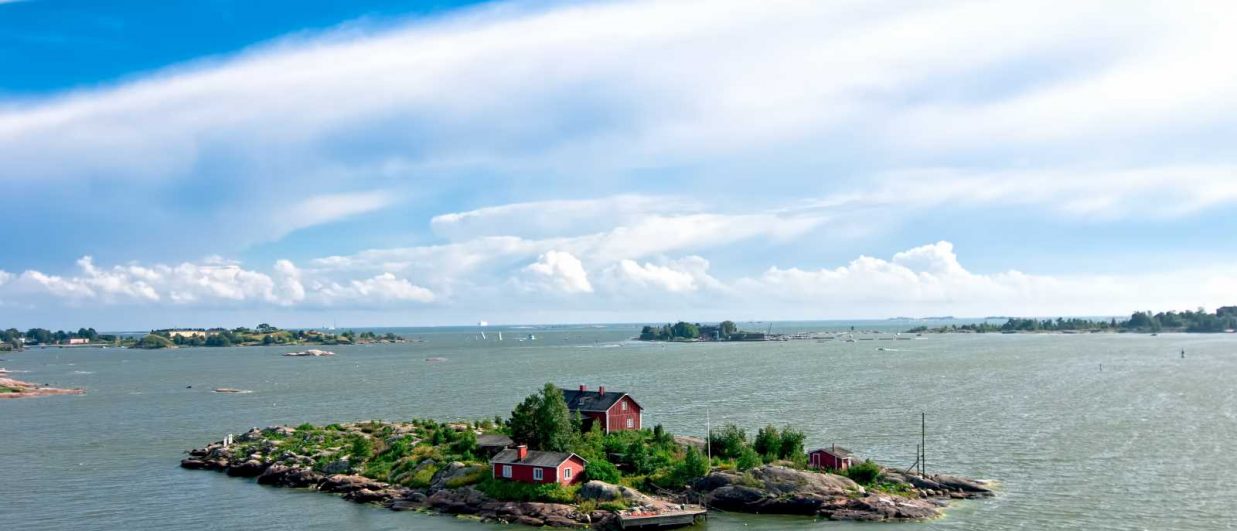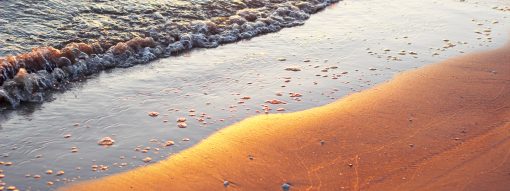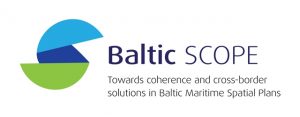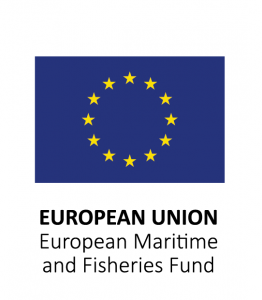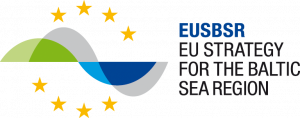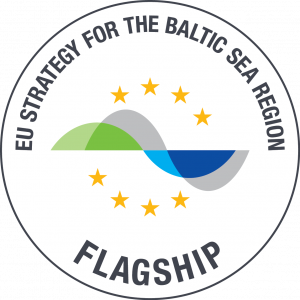Baltic SCOPE
Baltic SCOPE Towards coherence and cross-border solutions in Maritime Spatial Planning
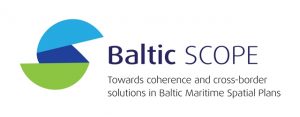
Project’s lifetime: March 2015 – March 2017
Total Project’s budget: € 2 638 829
The overall objective of the Project: to come up with common solutions of the cross-border maritime planning leading to greater alignment of national plans. It is a unique exercise to challenge countries involved, learn from the gained experience and transfer the knowledge beyond the Project and the Baltic Sea Region.
The Project is bringing together the partners from the organizations responsible for maritime spatial planning to facilitate the implementation of the EU MSP Directive.
Baltic SCOPE was designed to increase collaboration and coordination between national authorities and other key stakeholders, in order to develop common approaches to solve transboundary issues and enhance the alignment of national maritime spatial plans in the Baltic Sea region.
Baltic SCOPE was a unique cooperation, a learning-by-doing exercise, as the national planning was taking place while the project was running, at the same time uniting planning authorities around the Baltic Sea.
When project started, there was no common platform for actual planning and for informally exchanging related information. So it was created.
Everyone worked as a team, exchanging experiences, tackling the challenges of the complicated Maritime Spatial Planning here. We asked what was needed to achieve successful cross-border cooperation, and where potential barriers lay, and came up with solutions.
The project was divided in two case study areas to handle regional differences: the Central Baltic and Southwest Baltic case studies. The Central Baltic case covered the marine areas shared by Estonia, Latvia and Sweden. The Southwest Baltic case covered the marine areas shared with Germany, Denmark, Sweden and Poland.
The two-year project covered four sectors of maritime activities: fishery, shipping, environment and energy. New methods were developed to gather information and develop planning evidence. The project reached its aim and increased the collaboration between the countries involved. The findings we made in Baltic SCOPE can benefit the Baltic Sea, now and in the future.
To continue the cooperation and cover even more spatial issues the next phase of this collaboration will start in February 2018 as PanBaltic SCOPE. Follow it via #PanBalticSCOPE
The results of the Baltic SCOPE are available on its website www.balticscope.eu.
Participants of the project
Lead partner:
Swedish Agency for Marine and Water Management
Partner organizations:
Federal Maritime and Hydrographic Agency (DE)
Ministry of the Environment (DK)
Maritime Office in Szczecin (PL)
Ministry of Environmental Protection and Regional Development (LV)
Ministry of the Interior (EE)
SYKE (FI)
VASAB Secretariat
HELCOM Secretariat
Nordregio
